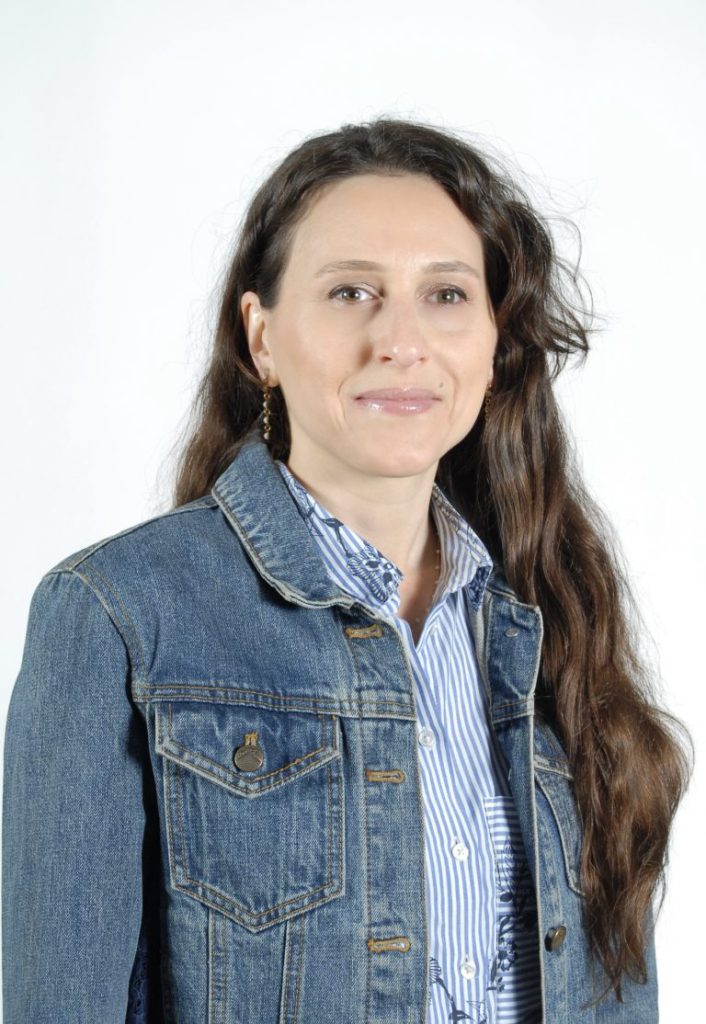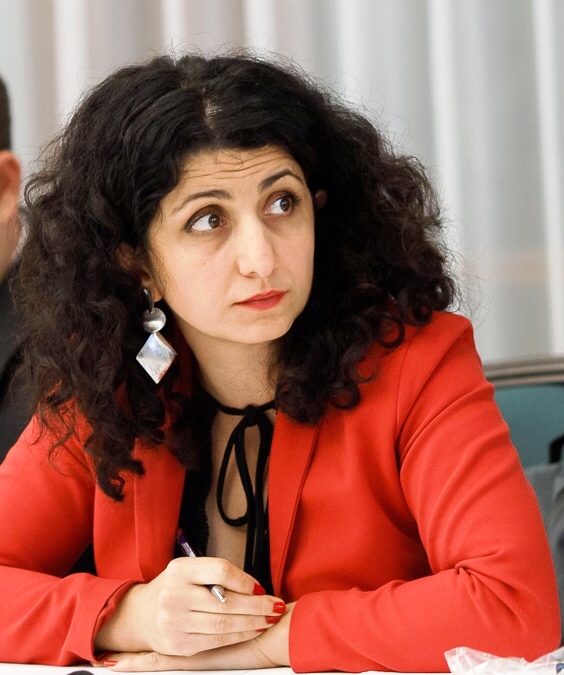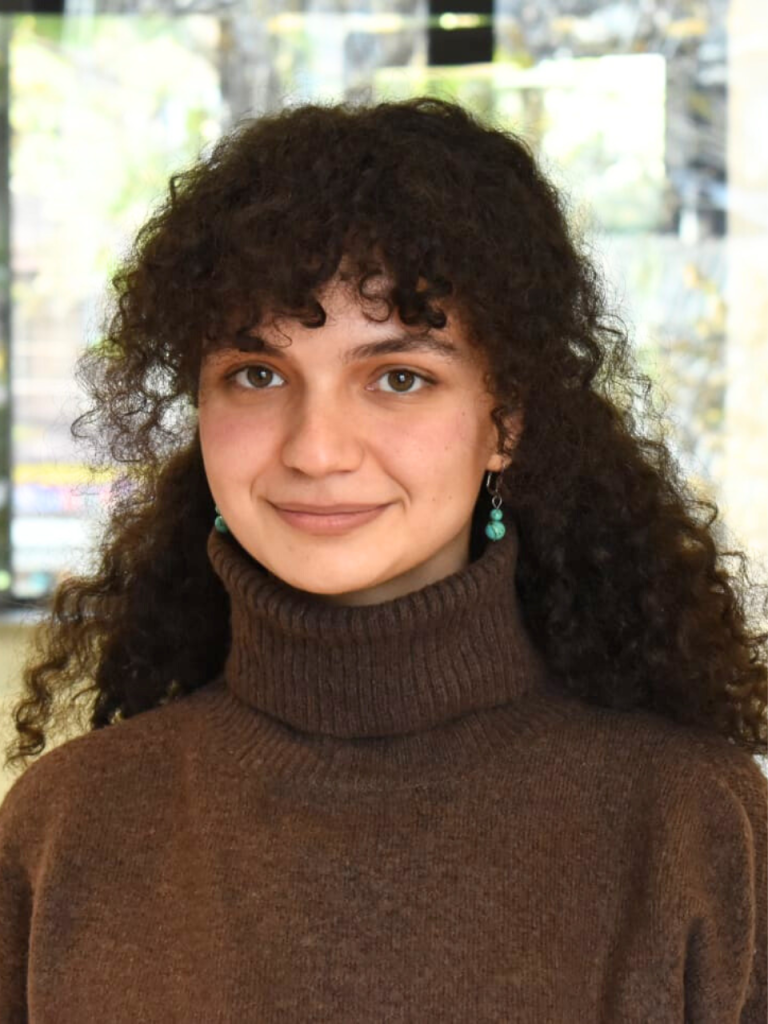Armenia’s Human Rights agenda: efforts amidst social and security challenges
Welcome to join us for a RUCARR Roundtable on Monday April 29, 15.15-17.00; Seminar room 9th floor, Niagara Building.
Online option: Zoom https://mau-se.zoom.us/j/62708879156
Valentina Gevorgyan: Civil Society actors in Armenia as the main defenders of human rights
The talk will concentrate on Armenian civil society. First, the speaker will present the phases of civil society development in Armenia’s post-Soviet period of troubled transition, followed by current developments and challenges for the civil society. The talk will reflect on one recent study (and research in progress, RWI), highlighting the main areas and functions of civil society actors, as the main drivers of democratisation and defenders of human rights in the republic.
Anna Melikyan: Impact of fighting corruption on human rights in Armenia since 2018
The presentation will focus on the efforts in Armenia to fight corruption after the change of government in 2018 as a result of the peaceful protests with a focus on prosecution. It will encompass how this fight affects the human rights situation in the country given the pressure of public expectations and whether the government and the judiciary are able to ensure the rule of law and human rights principles in corruption-related trials, including recovery of illicit assets.
Srbuhi Michikyan: Examining Multidimensional Poverty in conflict affected regions. The case of Syunik region in Armenia: Methodological concerns.
In conflict-affected regions worldwide, poverty is intertwined with violence, displacement, instability, and significantly affects the ability of individuals to lead dignified lives. Conventional poverty measures, focusing solely on income or consumption metrics, fail to capture the complexity of deprivation experienced in such contexts, however, multidimensional Poverty Index (MPI) has revolutionized poverty analysis, offering a holistic framework that considers diverse dimensions impacting well-being. The talk explores the methodological considerations specific to conducting MPI research in conflict areas, using Syunik region in Armenia as a case study. It discusses the challenges and opportunities inherent in conducting MPI research in a conflict contexts to understand the limitations of used methodology.
Moderator is Dr Katrine Gotfredsen, Senior Lecturer in Cauasus Studies, Malmö University.
Bios
 Valentina Gevorgyan – is a researcher of social and political developments in hybrid regimes with problematic post-Soviet legacy. Her academic interests centre on civil society, state-society relations, cultural policy and the EU accession and democratisation processes of the EU’s Eastern Partnership countries. She holds PhD in Political Science from University of Fribourg (Switzerland), and MA in Political Science from American University of Armenia.
Valentina Gevorgyan – is a researcher of social and political developments in hybrid regimes with problematic post-Soviet legacy. Her academic interests centre on civil society, state-society relations, cultural policy and the EU accession and democratisation processes of the EU’s Eastern Partnership countries. She holds PhD in Political Science from University of Fribourg (Switzerland), and MA in Political Science from American University of Armenia.
Previously, she worked as a research specialist with Open Society Foundations (Armenia), Academic Swiss Caucasus Net and Swiss Agency for Development and Cooperation in South Caucasus. Currently, she is Assistant Professor at Yerevan State University, Department of Political Science and a lecturer at University of Fribourg, Department of European and Slavic Studies. She reads courses on Civil Society and Political Culture, and is author of “Civil Society and Government Institutions in Armenia. Leaving Behind the ‘Post-Soviet’ Title” (Routledge, 2024). Currently she is a Research Fellow with RWI Armenia Programme.
 Anna Melikyan – Since 2020, Anna Melikyan is a Legal Analyst with the Armenia-based human-rights NGO “Protection of Rights Without Borders”. She also manages projects in the field of justice sector and anti-corruption reform in Armenia. Prior to that, Ms. Melikyan worked in the field of human rights and conflict settlement for international organizations, including the OSCE Mission to Moldova, OSCE Office for Democratic Institutions and Human Rights and Office of the UN High Commissioner for Human Rights, Mission to Osh. In 2012-2017, Anna worked for the Armenian NGO “Civil Society Institute” as Director and Human Rights Officer.
Anna Melikyan – Since 2020, Anna Melikyan is a Legal Analyst with the Armenia-based human-rights NGO “Protection of Rights Without Borders”. She also manages projects in the field of justice sector and anti-corruption reform in Armenia. Prior to that, Ms. Melikyan worked in the field of human rights and conflict settlement for international organizations, including the OSCE Mission to Moldova, OSCE Office for Democratic Institutions and Human Rights and Office of the UN High Commissioner for Human Rights, Mission to Osh. In 2012-2017, Anna worked for the Armenian NGO “Civil Society Institute” as Director and Human Rights Officer.
Ms. Melikyan has long-years of experience in teaching courses related to human rights and international humanitarian at the Russian-Armenian (Slavonic) University.
Anna Melikyan holds Law Degree from the Russian-Armenian (Slavonic) University, and LL.M. from the Geneva Academy of International Humanitarian Law and Human Rights. Currently, is a Research Fellow with RWI Armenia Programme.
 Srbuhi Michikyan – is a Research Associate at Caucasus Research Resource Center (CRRC) – Armenia Foundation. She holds a Master’s degree in Research Methodology and a Bachelor’s degree in Sociology, both earned from Yerevan State University. She spent one semester of her Master’s degree studies at University of Hradec Kralove, Czech Republic. Now she is a Ph.D. student in sociology at the Yerevan State University. Since 2018, she has been actively engaged with academic institutions, research institutes, and civil society organizations in Armenia. Srbuhi’s research interests encompass a wide range of sociological themes, with a particular focus on Inequality, urban studies, and space and place transformation studies. She has contributed to the academic discourse through the publication of several scholarly articles and analytical reports on these subjects. In her research activities, she employs a mixed approach, conducting both qualitative and quantitative analyses. Also, she is an expert of accreditation of Higher Education and worked as a student-expert both in Armenia and abroad. She has experience of coordinating and organizing local and international workshops and trainings. Currently she is a Research Fellow with the RWI Armenia Programme visiting Lund, until June 2024.
Srbuhi Michikyan – is a Research Associate at Caucasus Research Resource Center (CRRC) – Armenia Foundation. She holds a Master’s degree in Research Methodology and a Bachelor’s degree in Sociology, both earned from Yerevan State University. She spent one semester of her Master’s degree studies at University of Hradec Kralove, Czech Republic. Now she is a Ph.D. student in sociology at the Yerevan State University. Since 2018, she has been actively engaged with academic institutions, research institutes, and civil society organizations in Armenia. Srbuhi’s research interests encompass a wide range of sociological themes, with a particular focus on Inequality, urban studies, and space and place transformation studies. She has contributed to the academic discourse through the publication of several scholarly articles and analytical reports on these subjects. In her research activities, she employs a mixed approach, conducting both qualitative and quantitative analyses. Also, she is an expert of accreditation of Higher Education and worked as a student-expert both in Armenia and abroad. She has experience of coordinating and organizing local and international workshops and trainings. Currently she is a Research Fellow with the RWI Armenia Programme visiting Lund, until June 2024.


